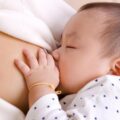You should eat these five foods for good inner ear health because the inner ear is a delicate organ that is responsible for hearing and balance. Over time, the inner ear can be damaged by a variety of factors, including aging, noise exposure, and certain medical conditions. This damage can lead to hearing loss and other problems.
Research has shown that Vitamin A, C, E, and magnesium help protect inner ear cells from damage caused by free radicals, which may lower the risk of hearing loss.
Thus, eating a healthy diet is one of the best ways to protect your inner ear health. Certain foods are particularly beneficial for inner ear health, as they contain nutrients that are essential for the proper functioning of the inner ear.
Here are five foods that are powerful for inner ear health:
1. Fish
Fish is a good source of omega-3 fatty acids, which have been shown to protect the inner ear from damage. Omega-3s can also help to improve blood flow to the inner ear, which is important for good hearing. Aim to eat at least two servings of fish per week, choosing fatty fish such as salmon, tuna, mackerel, and sardines[1].
2. Broccoli
Broccoli is a good source of folic acid, which is essential for the development and maintenance of the inner ear. Folic acid may also help to protect the inner ear from age-related hearing loss. Aim to eat at least one serving of broccoli per day[2].
3. Bananas
Bananas are a good source of potassium, which is important for maintaining fluid balance in the inner ear. Potassium may also help to protect the inner ear from damage caused by noise exposure. Aim to eat at least one banana per day[3].
4. Dark chocolate
Dark chocolate contains zinc, which is important for the health of the inner ear. Zinc may also help to reduce inflammation and protect the inner ear from damage caused by free radicals. Aim to eat a small amount of dark chocolate (at least 70% cocoa) each day[4].
5. Garlic
Garlic contains allicin, a compound that has anti-inflammatory and antioxidant properties. Allicin may help to protect the inner ear from damage caused by noise exposure and other factors. Aim to eat at least one clove of garlic per day[5].
In addition to eating a healthy diet, it is also important to avoid smoking and excessive exposure to loud noise to protect your inner ear health.
It is important to note that these foods are not a cure for hearing loss, but they may help to protect your hearing health and reduce your risk of developing hearing problems later in life.
FAQs
Here are some frequently asked questions about eating five foods for good inner ear health:
Q: How much of each food should I eat?
A: The following are some general recommendations:
- Fish: 2 servings per week
- Broccoli: 1 serving per day
- Bananas: 1 serving per day
- Dark chocolate: 1 small serving per day (with at least 70% cocoa)
- Garlic: 1 clove per day
Q: What if I don’t like fish?
A: There are other ways to get omega-3 fatty acids, such as taking a fish oil supplement or eating flaxseeds, chia seeds, or walnuts.
Q: How can I make sure I’m getting enough folic acid?
A: Fortified cereals, breads, and pasta are good sources of folic acid. You can also get folic acid from leafy green vegetables, beans, and lentils.
Q: What other foods are good for inner ear health?
A: In addition to the five foods listed above, other foods that are good for inner ear health include:
- Other fruits and vegetables: A variety of fruits and vegetables provide essential vitamins, minerals, and antioxidants that are important for overall health, including inner ear health.
- Whole grains: Whole grains are a good source of complex carbohydrates, fiber, and B vitamins, which are all important for inner ear health.
- Low-fat dairy products: Low-fat dairy products are a good source of calcium and vitamin D, which are both important for inner ear health.
Q: What foods should I avoid for good inner ear health?
A: Foods that are high in salt, sugar, and saturated fat can have a negative impact on inner ear health. It is also important to avoid smoking and excessive alcohol consumption, as these can also damage the inner ear.
Q: How can I protect my inner ear health from noise exposure?
A: When exposed to loud noise, it is important to wear earplugs or earmuffs. If you work in a noisy environment, you may want to consider wearing noise-canceling headphones.
By following these tips, you can help to protect your inner ear health and reduce your risk of developing hearing problems later in life.








Leave a Reply